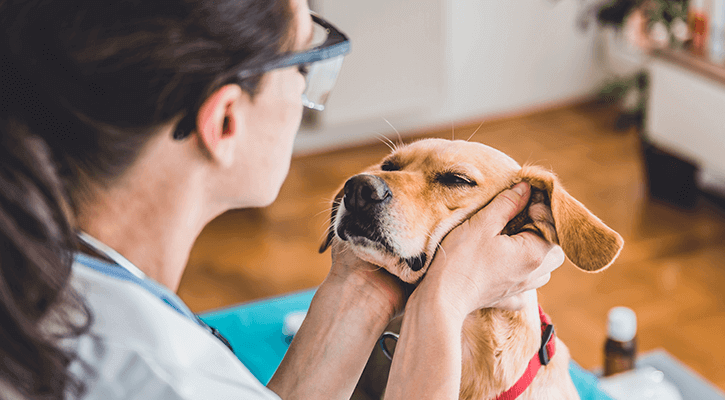Table of Contents
Keeping your pet healthy and happy requires regular attention to various aspects of their well-being. This guide provides comprehensive pet wellness checklists to ensure your pet receives the best care possible. From regular health checkups to diet and exercise, these checklists cover all the essentials. Here are ten essential wellness checklists for your pet’s optimal health.

1. Regular Veterinary Checkups
Regular veterinary checkups are crucial for monitoring your pet’s health and catching potential issues early:
- Annual Exams: Schedule annual exams for adult pets, and more frequent exams for puppies, kittens, and senior pets.
- Vaccinations: Keep your pet up-to-date on vaccinations to prevent common diseases.
- Parasite Control: Regularly check for fleas, ticks, and worms, and use appropriate prevention methods.
- Dental Checkups: Include dental checkups as part of regular vet visits to ensure good oral health.
Regular veterinary checkups help maintain your pet’s health and detect problems early.
2. Balanced Diet and Nutrition
A balanced diet is essential for your pet’s overall health and well-being:
- High-Quality Food: Choose high-quality pet food that meets your pet’s specific nutritional needs.
- Portion Control: Follow feeding guidelines to avoid overfeeding and maintain a healthy weight.
- Fresh Water: Ensure your pet has access to fresh, clean water at all times.
- Treats in Moderation: Offer treats in moderation to prevent obesity and nutritional imbalances.
Proper nutrition supports your pet’s health and vitality.
3. Regular Exercise and Activity
Regular exercise is vital for your pet’s physical and mental health:
- Daily Walks: Take your dog for daily walks to provide physical exercise and mental stimulation.
- Playtime: Engage your pet in playtime with toys and games to keep them active and entertained.
- Exercise Routine: Establish a regular exercise routine that suits your pet’s breed, age, and energy level.
- Interactive Toys: Use interactive toys to challenge your pet’s mind and keep them engaged.
Regular exercise helps prevent obesity, boredom, and behavioral issues.
4. Dental Care
Dental care is an important aspect of your pet’s overall health:
- Brushing Teeth: Brush your pet’s teeth regularly with pet-safe toothpaste to prevent plaque buildup.
- Dental Chews: Provide dental chews and toys to help clean teeth and freshen breath.
- Regular Checkups: Include dental checkups in regular vet visits to monitor oral health.
- Signs of Dental Issues: Watch for signs of dental problems, such as bad breath, difficulty eating, or red gums.
Good dental care prevents oral diseases and contributes to overall health.
5. Grooming and Hygiene
Regular grooming keeps your pet clean and comfortable:
- Brushing: Brush your pet’s coat regularly to remove loose fur and prevent matting.
- Bathing: Bathe your pet as needed with pet-safe shampoo to keep their coat clean and healthy.
- Nail Trimming: Trim your pet’s nails regularly to prevent overgrowth and discomfort.
- Ear Cleaning: Clean your pet’s ears to prevent infections and remove dirt and wax buildup.
Regular grooming promotes healthy skin and coat and prevents hygiene-related issues.
6. Mental Stimulation and Enrichment
Mental stimulation is crucial for your pet’s cognitive health and well-being:
- Puzzle Toys: Use puzzle toys to challenge your pet’s mind and keep them entertained.
- Training Sessions: Incorporate regular training sessions to teach new commands and tricks.
- Variety of Activities: Provide a variety of activities to prevent boredom and promote mental engagement.
- Environmental Enrichment: Create an enriching environment with different textures, scents, and interactive elements.
Mental stimulation helps prevent behavioral issues and keeps your pet happy and engaged.
7. Socialization and Interaction
Socialization and interaction are important for your pet’s emotional health:
- Playdates: Arrange playdates with other pets to encourage socialization.
- Positive Reinforcement: Use positive reinforcement to encourage good social behavior.
- Exposure to Different Environments: Gradually expose your pet to different environments and experiences.
- Quality Time: Spend quality time interacting with your pet to strengthen your bond.
Good socialization skills help your pet feel more comfortable and confident in various situations.
8. Regular Monitoring of Behavior and Health
Regularly monitoring your pet’s behavior and health can help identify issues early:
- Behavioral Changes: Watch for any changes in behavior, such as increased aggression or withdrawal.
- Physical Health: Monitor for signs of illness or discomfort, such as limping, coughing, or changes in appetite.
- Routine Checks: Perform routine checks for lumps, bumps, and other abnormalities.
- Veterinary Consultation: Consult your veterinarian if you notice any unusual behavior or health issues.
Regular monitoring ensures early detection and treatment of potential health problems.
9. Safety and Preventative Care
Ensuring your pet’s safety and practicing preventative care are key to their well-being:
- Pet-Proofing: Pet-proof your home to remove hazards and prevent accidents.
- Identification: Ensure your pet has proper identification, such as a microchip and ID tags.
- Preventative Medications: Use preventative medications for heartworm, fleas, and ticks.
- Safe Environment: Provide a safe environment both indoors and outdoors for your pet.
Safety and preventative care help protect your pet from harm and disease.
10. Emergency Preparedness
Being prepared for emergencies can save your pet’s life:
- Emergency Kit: Keep an emergency kit with essentials like food, water, medications, and a first-aid kit.
- Emergency Contact: Have your veterinarian’s contact information and a local emergency clinic’s number handy.
- Evacuation Plan: Develop an evacuation plan that includes your pet in case of natural disasters or emergencies.
- Training: Learn basic pet first-aid skills to handle emergencies until professional help is available.
Emergency preparedness ensures you can act quickly and effectively in case of an emergency.
Conclusion on Pet Wellness Checklists
Maintaining your pet’s health and well-being requires regular attention and care. By following these pet wellness checklists, you can ensure your pet receives comprehensive care in all aspects of their life. Regular veterinary checkups, a balanced diet, exercise, dental care, grooming, mental stimulation, socialization, behavior monitoring, safety, and emergency preparedness are all crucial for your pet’s optimal health. For more information on pet wellness, visit the ASPCA and the Humane Society.
FAQs on Pet Wellness Checklists
How often should I take my pet to the veterinarian?
Adult pets should visit the veterinarian at least once a year for a checkup. Puppies, kittens, and senior pets may require more frequent visits.
What are the signs that my pet needs a dental checkup?
Signs that your pet needs a dental checkup include bad breath, difficulty eating, red or swollen gums, and visible tartar buildup on their teeth.
How can I keep my pet mentally stimulated?
Keep your pet mentally stimulated with interactive toys, puzzle feeders, regular training sessions, and a variety of activities that challenge their mind.
What should be included in a pet emergency kit?
A pet emergency kit should include food, water, medications, a first-aid kit, a leash, identification, and any other essentials your pet might need during an emergency.
How can I help my pet maintain a healthy weight?
Help your pet maintain a healthy weight by providing a balanced diet, following portion control guidelines, and ensuring they get regular exercise.
Why is socialization important for pets?
Socialization helps pets develop good behavior, reduces fear and anxiety, and makes them more comfortable in different environments and around other animals and people.










